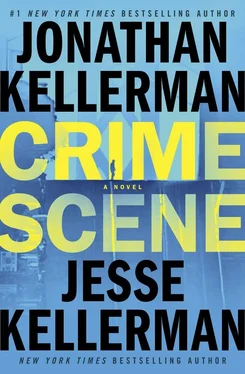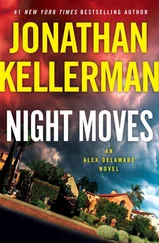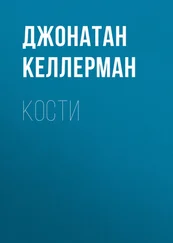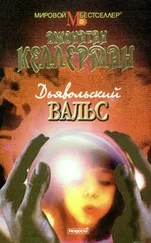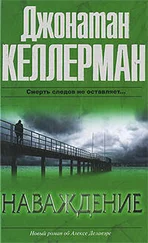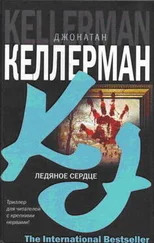The parallels I did see were better explained as coincidental. Linstad and Rennert both drank. So what? Booze is a versatile killer — death’s utility player. Some people drink enough to weaken their aortas. Others drink and fall down the stairs.
Look for connections and you can find them anywhere.
Linstad lived in a duplex. Aha! So did Tatiana.
See? Hot garbage.
A statement taken by Berkeley PD heightened my interest somewhat. A rear neighbor claimed he’d heard the sound of an argument, followed by a loud bang — possibly a gunshot — around midnight.
Canvass failed to corroborate him, however, and when pressed, the guy admitted he couldn’t be sure the noise hadn’t been a thunderclap or that it hadn’t come from a television. There was, it appeared, no follow-up.
Nobody — not us, not police — mentioned the offender from the Donna Zhao murder. Either they hadn’t known about him or they regarded his involvement as so unlikely as to not merit a phone call.
Yet despite all this, Coroner’s Investigator Ming, in his initial finding, had mannered the death undetermined.
I could sense his discomfort radiating off the page. Undetermineds don’t sit well with anyone, especially next of kin. We make every effort to avoid them, convening monthly to hash them out in a group session, along with Vitti and our lieutenant. Most of the time we can arrive at a determination, just as Ming and Co. eventually had.
The death of Nicholas Linstad became an accident.
What had made Ming doubt?
I asked Shupfer if she had his phone number handy.
“I got an old case of his,” I said.
She gave me her stare-down, then scribbled on a Post-it. “Here you go, princess.”
Before I could dial, my desk phone rang.
“Coroner’s Bureau, Deputy Edison.”
“Ahhh, yes, hello there.”
“How’s it going, Mr. Afton.”
“It’s going all right, thank you, yeah. Listen, I wanted to tell you that I am ready to go ahead with the arrangements for the burial that we discussed earlier.”
“County indigent,” I said.
“Hahhhuhh...? No sir, I did not mean that, I don’t mean that.”
“You found a relative?”
“Yes sir. Well no, not that, but I spoke to the man at the place where they got him at, and originally they said it was going to cost eleven hundred dollars but the man said he can do it for five.”
The mortuary getting rid of the body, even at a loss. Chalk one up for pigheadedness. Though by Afton’s own account, five hundred was still more than he could afford.
He beat me to it: “As a matter of fact and to tell you the truth I do not have that amount in my possession currently, but I am expecting to have it sometime next week.”
“Right.”
“So what I would like from you, sir, is to inform you of that fact, so that we can keep the situation in a holding pattern, okay, a little while longer until this other situation comes through and I can get me paid.”
“Next week?”
“Yes sir.”
“Okay. You’re sure about this?”
“Ahhha, yes, yes I am.”
“All right.”
“All right all right. So I’ll talk to you next week, then.”
“No need. You can just handle it with the folks at the mortuary.”
“Yes sir. I will do that. You take care now.”
“You, too, Mr. Afton.”
I replaced the phone. Studied the Post-it with Ming’s number, unsure whether to call.
Moffett decided for me. “Yo, Coach. Ten fifty-five Alameda, we’re up.”
I stuck the Post-it to the bottom of my screen and reached for my vest.
Two weeks later, I hadn’t heard from Afton or the mortuary, which I took as a good sign. I also hadn’t heard from Tatiana, which I chose to regard as not a sign of anything. I still had the Post-it stuck to my screen, but it had drifted to the margins of my awareness.
On a slow Saturday morning, I opened my queue to begin closing out cases.
Click a name, confirm everything’s square, send it sailing into history.
I came to RENNERT, WALTER J.
The autopsy protocol had come in the previous day.
I didn’t need to read it. I knew what it said. Everything was square.
I moved my cursor to SUBMIT.
The Post-it seemed to light up.
I pulled it loose. Stared at it. Called Ming.
Got voicemail.
I hung up without leaving a message and put the Post-it in the trash.
The cursor sat, ready and willing to flush Rennert Walter J. and Rennert-Delavigne Tatiana Middle-initial-something from my system.
I couldn’t tell her the story she wanted to hear, but I might yet convince her I’d kept an open mind.
I clicked the supplementary tab and opened Rennert’s cellphone data dump.
In the week leading up to Walter Rennert’s aortic dissection, he’d used his browser sparingly. He read CNN and BBC. He searched Southwest flights from Oakland to Reno. He shopped for a new showerhead, probably to replace the leaky one in his attic quarters. He visited the homepage for the California Psychological Association, following many of the links. He’d abandoned his position but not his passion.
His email was mostly spam. One came from a Charles Rennert — Tatiana’s brother Charlie. The REPLY-TO field indicated that he worked for an NGO. He wrote testily that he was still waiting to hear back about using the Tahoe house. He needed an answer from his father by the end of the week, so he could tell Jenna whether to enroll the kids in winter camp or not. So far as I could tell, Rennert had never gotten the chance to write back.
The calendar had him playing tennis on Monday, Wednesday, and — significantly — Friday at noon. The pathologist had placed Rennert’s time of death between eight o’clock that night and two o’clock Saturday morning. I could call the tennis club, find out who he played with. Maybe that final game had been extra hardcore. Although if Gerald Clark was to be believed, Rennert played only one way.
For most of that week, he’d made or received fewer than a dozen phone calls. A dry cleaner; Citibank customer service; the pharmacy where he got his Risperdal. A handful of calls to his daughter. True to her word, she had phoned him on Friday at ten twenty-one a.m., a call lasting about four minutes.
Anything special for brunch, Dad?
Then the pattern changed.
Around three thirty p.m., Rennert began dialing an East Bay number. The calls were short, and there were a lot of them — eighteen, in fact, lasting thirty or forty seconds apiece, as though he couldn’t get through but refused to give up. They started out at fifteen-minute intervals, but by five o’clock he was retrying every few minutes.
Whoever he’d been calling was quite likely the last person to speak to him. Assuming they had spoken.
I reverse-searched the number. It belonged to the Claremont Hotel, adjacent to the club where Rennert played tennis and a five-minute walk from his house.
If he needed to reach someone that badly, why hadn’t he just gone over in person?
Maybe he had.
I called the front desk, identified myself, asked about the extension, and learned it belonged to room four fifteen. I asked who’d occupied it last September 8 and was told that information was private.
“Who’m I speaking to?”
“My name is Emilio.”
“Listen, Emilio, do me a favor and put your manager on?”
Dead air, then he came back. “I asked her, sir. She’s very clear that we can’t disclose that. Was there anything else I could help you with?”
I quashed the urge to point out that he had not helped me overly much. I said, “All right, Emilio. I’ll be seeing you later.”
“Yes sir.” Then: “Sorry, what?”
Читать дальше
